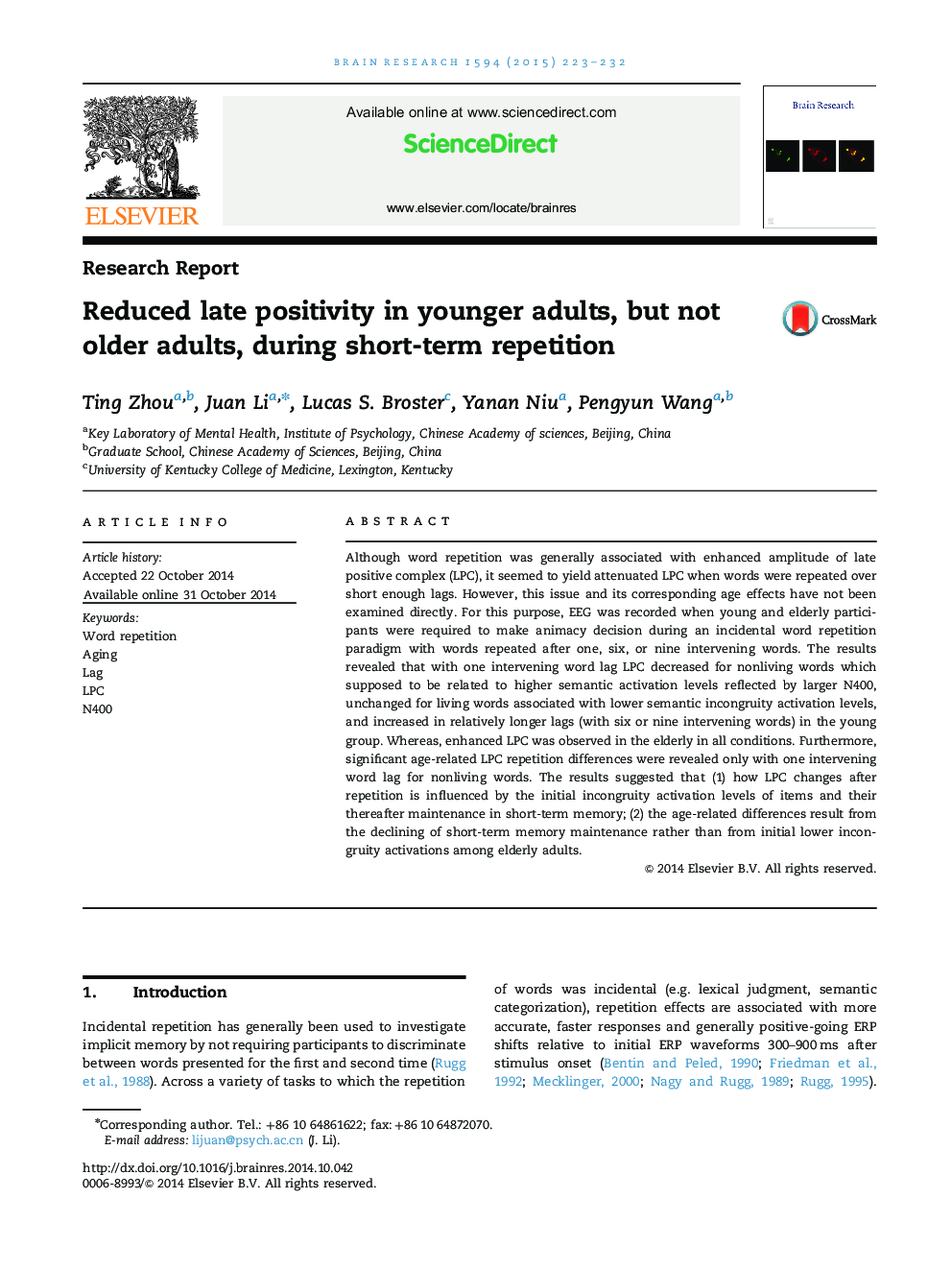| Article ID | Journal | Published Year | Pages | File Type |
|---|---|---|---|---|
| 4324023 | Brain Research | 2015 | 10 Pages |
•Both lag and word semantic congruity affect the change direction of LPC in younger adults.•Age effects emerge in lag 1 repetition of congruous words.•The results support the account of LPC indexing the retrieval demands.•Maintenance rather than initial activation was affected in elderly adults.
Although word repetition was generally associated with enhanced amplitude of late positive complex (LPC), it seemed to yield attenuated LPC when words were repeated over short enough lags. However, this issue and its corresponding age effects have not been examined directly. For this purpose, EEG was recorded when young and elderly participants were required to make animacy decision during an incidental word repetition paradigm with words repeated after one, six, or nine intervening words. The results revealed that with one intervening word lag LPC decreased for nonliving words which supposed to be related to higher semantic activation levels reflected by larger N400, unchanged for living words associated with lower semantic incongruity activation levels, and increased in relatively longer lags (with six or nine intervening words) in the young group. Whereas, enhanced LPC was observed in the elderly in all conditions. Furthermore, significant age-related LPC repetition differences were revealed only with one intervening word lag for nonliving words. The results suggested that (1) how LPC changes after repetition is influenced by the initial incongruity activation levels of items and their thereafter maintenance in short-term memory; (2) the age-related differences result from the declining of short-term memory maintenance rather than from initial lower incongruity activations among elderly adults.
